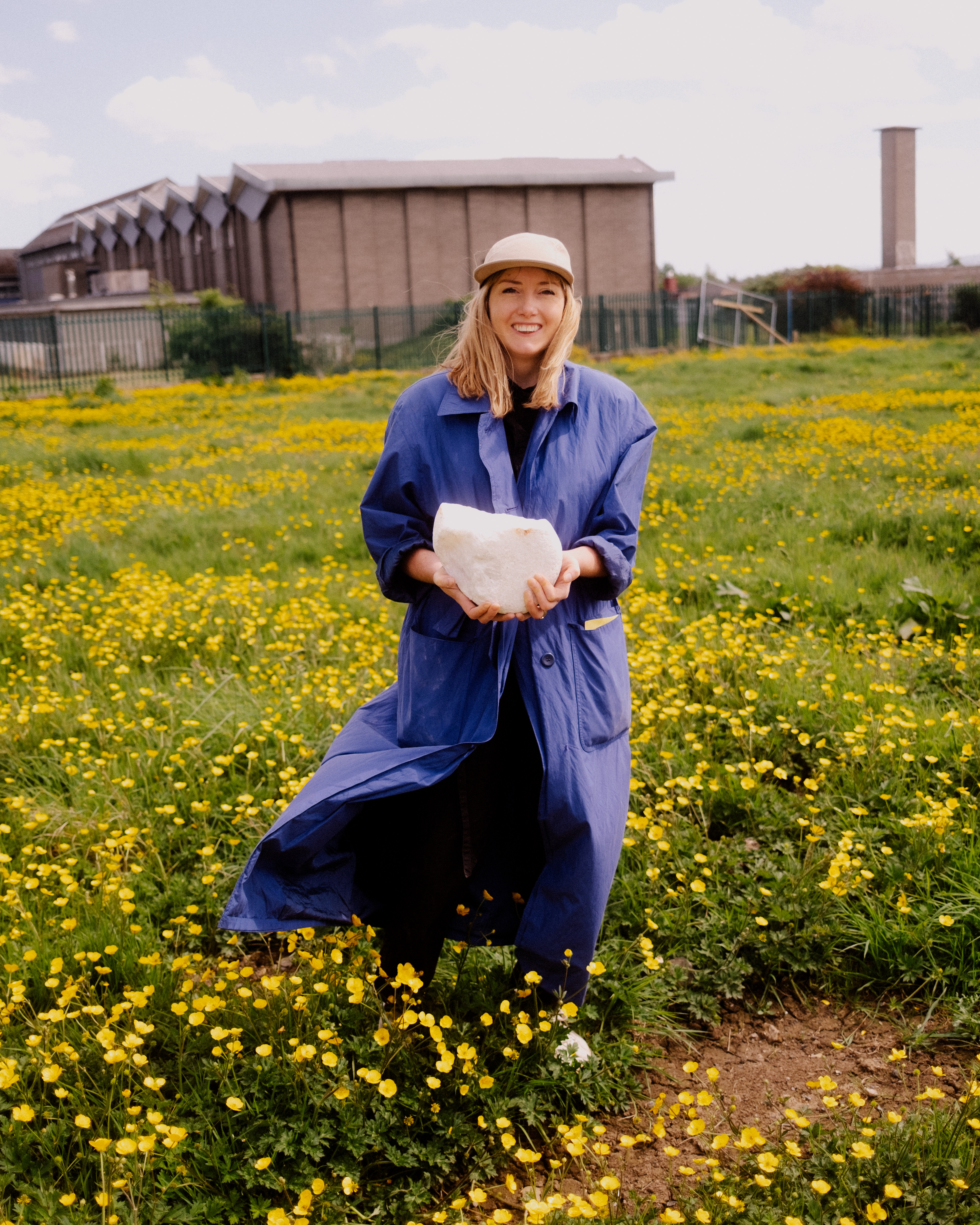

Images by Faolán Carey 2022
Fiona Hallinan is an artist, researcher, filmmaker and, alongside curator Kate Strain, co-founder of the Department of Ultimology, based between Brussels, Belgium and Cork, Ireland. Her doctoral research at LUCA School of Arts, KU Leuven explores the coming-into-being of Ultimology, the study of that which is dead or dying (death here encompassing both the end of life and the passing into irrelevance, redundancy or extinction of material and immaterial entities), as a tool for transformative discourse.
Based in a practice of oral interview, this project involves instigating gatherings around ‘ruptures’ as case studies; the closure of a canteen, the demolition of a church, the extinction of a plant. This research is informed by gathering knowledge related to rituals of mourning, supported by the monthly reading group On Death.
Supported by the Irish Arts Council Project Award, she recently developed a collaborative project that looks at the demolition of Ireland’s second largest Catholic Church as an example of a rupture. This film and installation with an accompanying symposium was exhibited in the main gallery at VISUAL Carlow in Spring 2023 and will be shown as part of an Ultimology project at the Irish Architectural Archive opening September 14th 2023. Her film Making Dust, premiered at the IFI Documentary Festival, Dublin, on October 1st 2023. She is interested in themes of hospitality, traces, thresholds, care and critical pedagogy and often works with food as part of her practice, cooking and organising meals.
She has presented work in a number of international contexts, including at IMMA, Kerlin Gallery, the John Nicholas Brown Centre for Public Humanities at Brown University and Grazer Kunstverein. She has written for a number of international publications, including the forthcoming Encyclopaedia for Radical Helping, published by Thick Press and Visual Artists Newsletter.
Based in a practice of oral interview, this project involves instigating gatherings around ‘ruptures’ as case studies; the closure of a canteen, the demolition of a church, the extinction of a plant. This research is informed by gathering knowledge related to rituals of mourning, supported by the monthly reading group On Death.
Supported by the Irish Arts Council Project Award, she recently developed a collaborative project that looks at the demolition of Ireland’s second largest Catholic Church as an example of a rupture. This film and installation with an accompanying symposium was exhibited in the main gallery at VISUAL Carlow in Spring 2023 and will be shown as part of an Ultimology project at the Irish Architectural Archive opening September 14th 2023. Her film Making Dust, premiered at the IFI Documentary Festival, Dublin, on October 1st 2023. She is interested in themes of hospitality, traces, thresholds, care and critical pedagogy and often works with food as part of her practice, cooking and organising meals.
She has presented work in a number of international contexts, including at IMMA, Kerlin Gallery, the John Nicholas Brown Centre for Public Humanities at Brown University and Grazer Kunstverein. She has written for a number of international publications, including the forthcoming Encyclopaedia for Radical Helping, published by Thick Press and Visual Artists Newsletter.